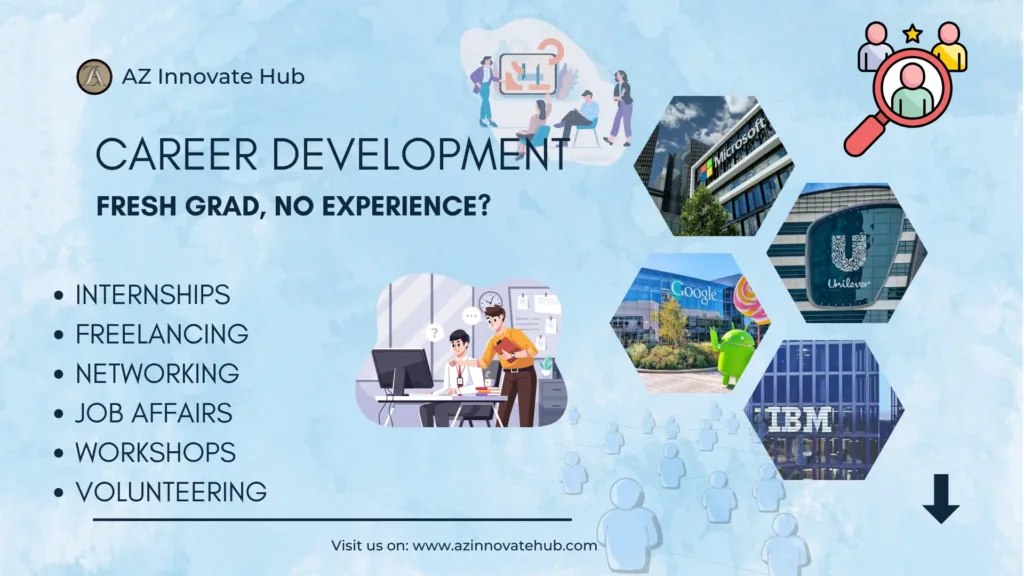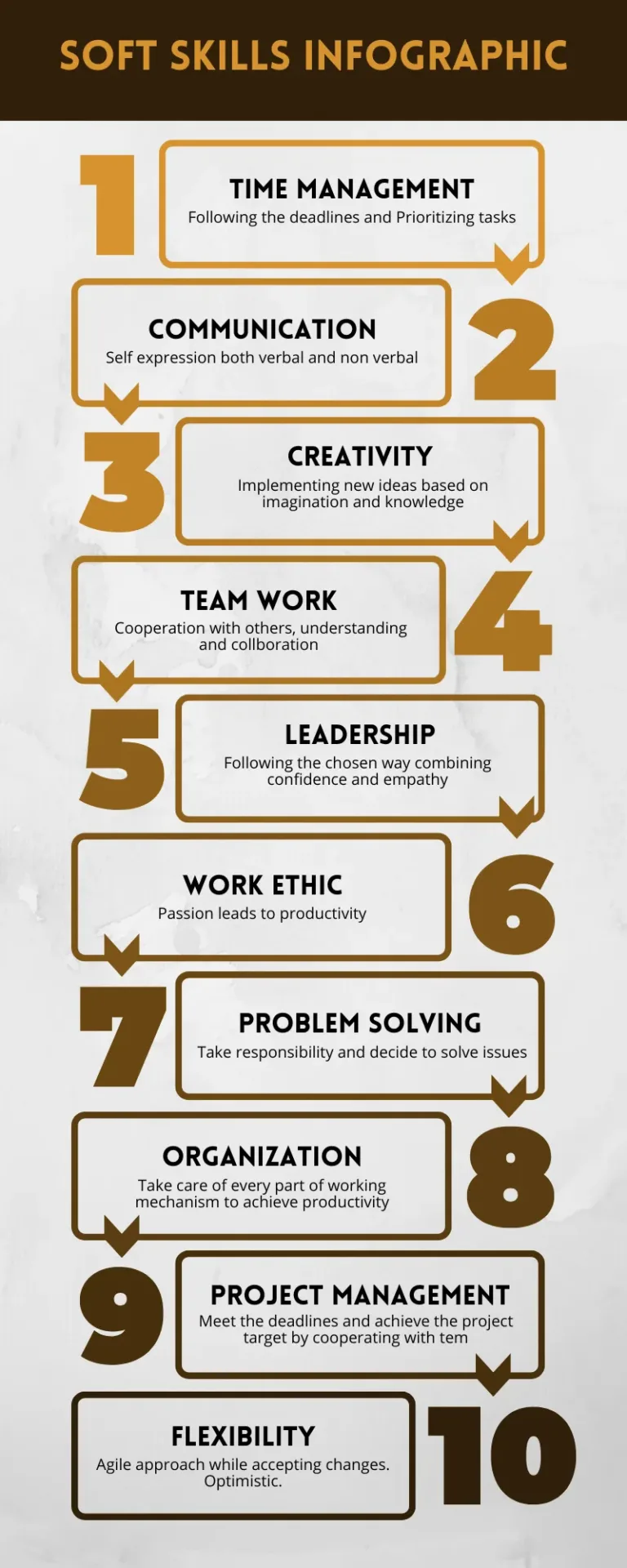
How Fresh Graduates Can Gain Experience: Strategies to Succeed in the Job Market
In today’s competitive job market, one of the biggest challenges that fresh graduates face is the “experience paradox” organizations want candidates with experience, but as a fresh graduate, how can you get that experience if no one is willing to give you a change? It’s a cycle that can feel frustrating, disheartening, and downright impossible to break. But there are effective strategies and opportunities to gain valuable experience while you’re still studying or fresh out of college.
This article aims to provide actionable steps for students and freshers to gain experience, covering opportunities like internships, volunteering, project work, and certifications, along with a list of companies offering internships globally.
Breaking the Experience Barrier: Tips for Fresh Graduates
Internships are one of the best ways to get hands-on experience in your field of study. Whether you’re working part-time during the semester or taking on a full-time internship over the summer, these positions offer exposure to real-world projects and industry practices.
Types of Internships:
- Paid Internships: Offer a stipend or hourly pay.
- Unpaid Internships: May not provide financial compensation but offer significant learning opportunities.
- Virtual Internships: Conducted remotely, allowing you to gain experience without geographic constraints.
Companies Offering Internships in the USA and Globally
Several companies actively seek fresh talent through internships and training programs:
- USA:
- Google: Summer internships in Software Engineering, UX Design, and Product Management.
- Microsoft: Offers internships for technical and non-technical roles.
- Goldman Sachs: Internship programs in finance, risk management, and data analytics.
- IBM: Internships in AI, data science, and technology consulting.
- Europe:
- Siemens (Germany): Internships in Engineering and Technology.
- Unilever (UK): Global Internship programs in Marketing and Business Strategy.
- India:
- TCS (Tata Consultancy Services): Internships for students in computer science and IT.
- Infosys: Summer internships focusing on software development and analytics.
Freelancing: Gaining Experience Through Projects
Freelancing allows you to take up small projects and build a portfolio that demonstrates your skills. Websites like Upwork, Freelancer, and Fiverr are excellent platforms to find projects in graphic design, content writing, web development, and more.
Pro Tip: Start with small gigs that match your skillset, collect testimonials, and gradually increase your project scope and pay rate.
Volunteering: Building Soft Skills and Networking
Volunteering helps you develop interpersonal skills, project management capabilities, and teamwork. Consider volunteering at non-profit organizations, student clubs, or community events.

Certifications and Online Courses
Platforms like Coursera, LinkedIn Learning, and Udemy offer industry relevant courses and certification that can bolster your resume. Popular courses include:
- Google’s Digital Marketing Certification
- Microsoft Azure Fundamentals
- IBM Data Science Professional Certificate
These certifications can make your resume stand out and show employers your commitment to learning.
Strategies to Get Internships and Experience Faster
Leverage Your College's Career Services
Most universities have career services department that helps students connect with companies offering internships. Attend job fairs, workshops, and use campus resources to apply for roles.
Networking: Reach Out to Professionals
Networking is critical. Connect with alumni and professionals in your field through platforms like LinkedIn. Participate in webinars, join relevant groups, and seek informational interviews to build relationships and learn about internships opportunities.
Example: A student attending a cybersecurity webinar connected with a speaker who later offered an internship role at a cybersecurity firm.
What to Include in Your Resume and Portfolio
Having a strong resume and portfolio is crucial when applying for internships or freelance work. Include the following elements:
- Acedemic Projects: Showcase any project work related to your field.
- Certifications: List relevant online courses or certifications.
- Skills Section: Highlight both technical and soft skills.
- Portfolio: A portfolio of work samples (for fields like graphic design, software development, etc.) helps showcase your skills visually.

Companies That Don't Require Experience for Entry-Level Roles
Some organizations specifically focus on hiring fresh graduates and offer extensive training: Examples include:
- Deloitte: Offers the Graduate Recruitment Program, focusing on training freshers in consulting and technology.
- PwC (PricewaterhouseCoopers): Has entry-level roles that don’t require prior experience.
- EY (Ernst & Young): Focuses on building skills through their EY Campus Recruitment Programs.
Overcoming the "No Experience" Challenge: Final Tips
- Tailor Your Resume: Emphasize skills and academic projects.
- Showcase Extracurriculars: Include leadership roles, club memberships, and workshops.
- Build a Strong LinkedIn Profile: Regularly update it and request recommendations.
- Start Small: Look for internships at smaller companies or startups if large firms seem daunting.
Conclusion
The journey to gain experience as a fresh graduate can be challenging, but by leveraging internships, volunteering, and freelance work, students can build the experience needed to stand out.
